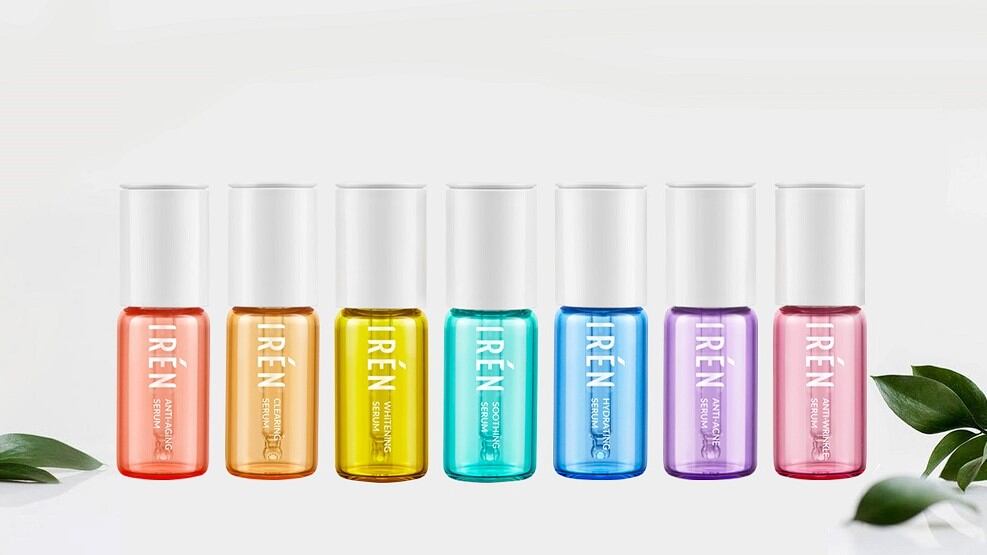IRÉN will officially begin its operations in Paris and Japan in the third and fourth quarter of 2019 respectively. Paris will serve as the brand’s base in Europe.
Going international
IRÉN founder and CEO of Ikeda Group, Eric Tan said that brand awareness was rising domestically due to its aggressive digital marketing efforts.
He added: “Through a survey we found that more than 80% of our customers will refer us to a friend. Additionally, we see many repeat sales, an indication that the products are working.”
The company is wasting no time expanding its global footprint: “We are fortunate that we are working with Enterprise Singapore. They are helping us to scale the business and are pushing us to the international frontier.”
The move to Tokyo and Paris is a natural step for the brand, because it manufactures its products in Japan and was invited by Sephora to join its Sephora Accelerate Program in Paris.
“Sephora really liked our product because even though it’s Japanese, its fun, colourful and experimental, unlike other Japanese brand which are more [traditional and conservative],” Tan commented.
Today, the brand works very closely with Sephora to see how it can market the product in Europe. If all goes well, IRÉN will even be stocked at Sephora.
Other than Paris, Tan said the firm is in talks with departmental stores around Japan and in London.
Spray and go
IRÉN is best known for its customisable serums and its unique delivery system, the Skin Vaporizer, a skin care device that allows consumers to spray on products directly onto skin.
The device shrinks formulas into nano-sized particles that can penetrate deeply into the skin, enhancing fast absorption of active ingredients.
“When we looked into consumer’s lifestyle, we notice that they are becoming more active. They have less pockets of time for relaxation but they still want to look their best. With the Skin Vaporizer, they can just pour the serums into the device and spray it out as a mist that is so fine you don’t need to tap it into the skin,” explained Tan.
While there are other devices in the market like IRÉN’s Skin Vaporize, the firm believes it is unique because of its ability to spray out viscous solutions.
Tan told CosmeticsDesign-Asia that the device was capable of turning most liquid foundations on the market into a fine spray-on mist:“We tried most liquid foundations in the market and it works. Most of our customers do that with their liquid foundations mixed with serums.”
Personalised ‘Happy’ serums
Initially, the Skin Vaporizer was designed for the brand’s seven serums that each target a specific skin concern such as acne, dullness or wrinkles.
“Mostly, consumers have more than one skin concern. We weren’t able to come up with one miracle serum. So we came up with different serums each targeting different skin concerns. Depending on your needs, you can mix and match and personalise to your skin,” said Tan.
Consumers can mix up to three serums to formulate their own personalised serum.
Tan believes the personalisation trend is especially relevant in Asia, where people and climates are diverse.
“When you look at it, most of the skin care formulated in Japan or Korea is not suitable for places like Singapore, where it’s tropical and humid. So that’s where personalisation comes in.”
He believes more new brands entering the market will align themselves with the personalisation trend, because it is a good strategy to find a niche and cater to the people bigger brands have overlooked.
An advocate of the clean beauty movement, IRÉN blacklisted over 2,000 ingredients that have the potential to irritate the skin.
“Some of them are not toxic, but can irritate the skin. For example, alcohol is banned. While it gives great texture and kills bacteria, it is not suitable for dry skin as it can cause sensitivity,” said Tan.
“This makes formulations very challenging, but we try to strike a balance and give the maximum efficacy by using very safe ingredients.”
Another challenge the brand faced with its serums was protecting the active ingredients.
As certain chemicals can neutralise the effects of its active ingredients, the company worked with Singaporean research agency A*STAR to create an encapsulation technology that forms a protective layer around the active.
This ensures the active ingredients so they do not interact with one another until they penetrate the skin.




